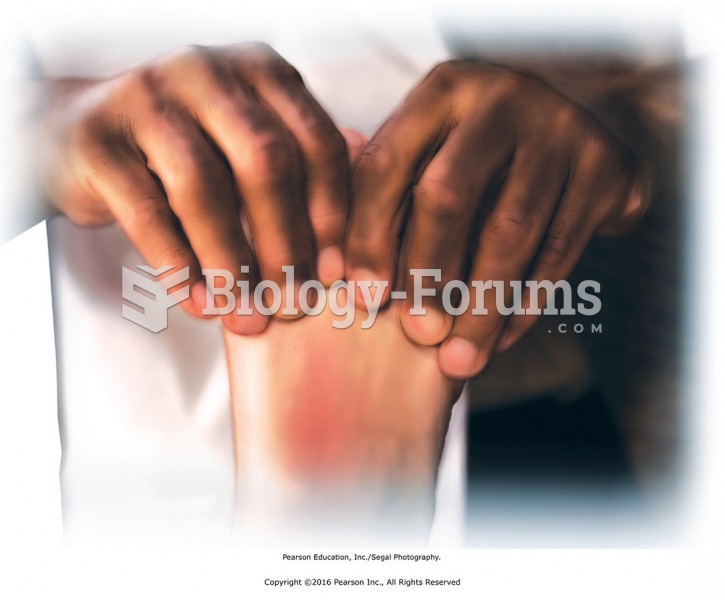This topic contains a solution. Click here to go to the answer
|
|
|
Did you know?
Everyone has one nostril that is larger than the other.
Did you know?
Eat fiber! A diet high in fiber can help lower cholesterol levels by as much as 10%.
Did you know?
The lipid bilayer is made of phospholipids. They are arranged in a double layer because one of their ends is attracted to water while the other is repelled by water.
Did you know?
The effects of organophosphate poisoning are referred to by using the abbreviations “SLUD” or “SLUDGE,” It stands for: salivation, lacrimation, urination, defecation, GI upset, and emesis.
Did you know?
There are 20 feet of blood vessels in each square inch of human skin.
 The world has been horrified recently at a U.S. Congress so polarized and paralyzed that it cannot p
The world has been horrified recently at a U.S. Congress so polarized and paralyzed that it cannot p
 Rem Koolhaas and Ole Scheeren, OMA, New Headquarters, Central Chinese Television (CCTV), Beijing, ...
Rem Koolhaas and Ole Scheeren, OMA, New Headquarters, Central Chinese Television (CCTV), Beijing, ...
 Lymphatic Drainage on Dorsum with Ankle Rotation. With the fingers of both hands, gently stretch the ...
Lymphatic Drainage on Dorsum with Ankle Rotation. With the fingers of both hands, gently stretch the ...




